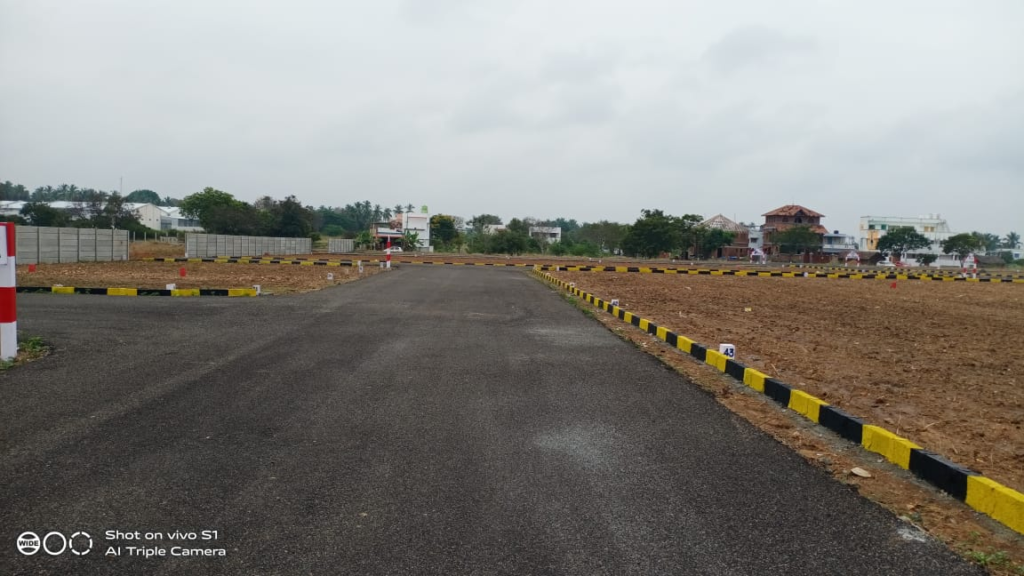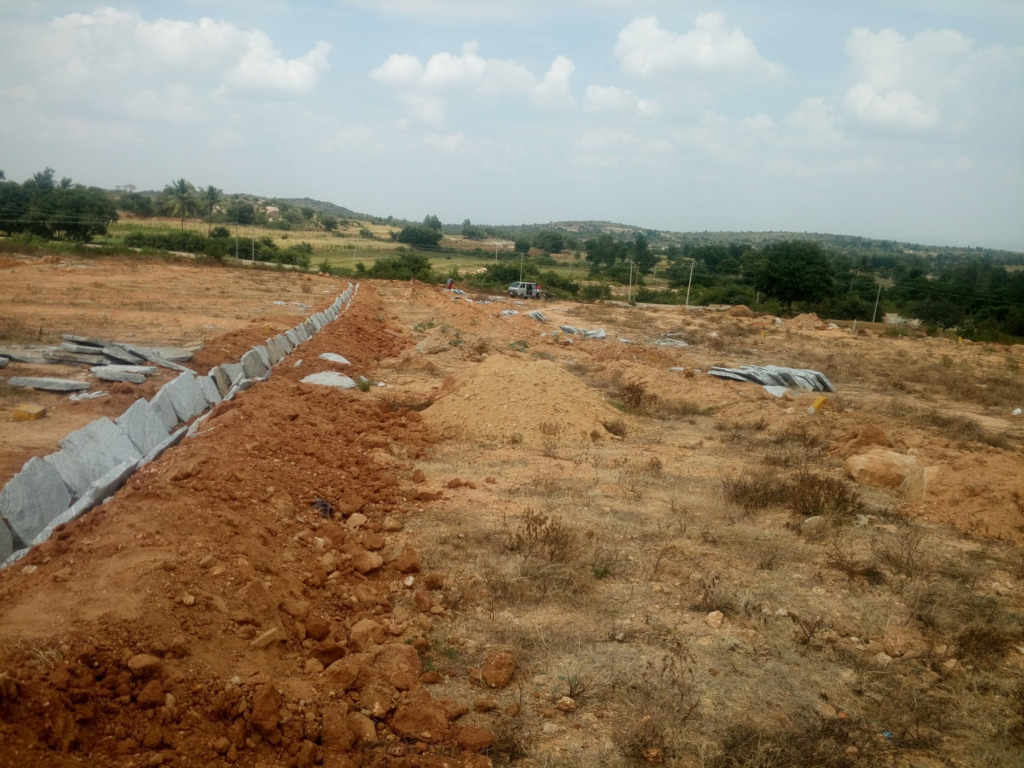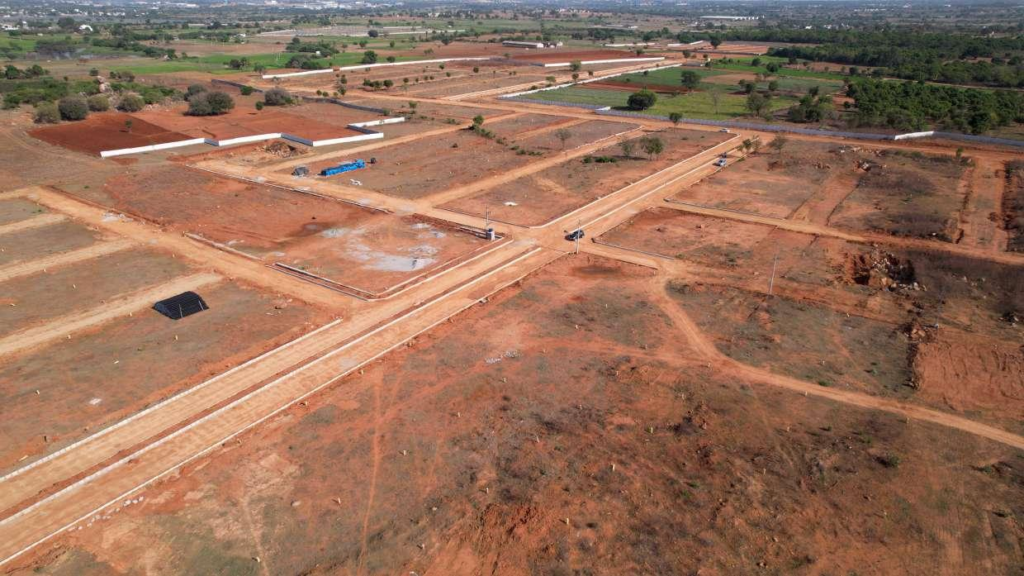Are you dreaming of owning land without breaking the bank? DTCP approved plots in EMI scheme might be the perfect solution for you. In this comprehensive guide, we’ll explore everything you need to know about these plots and how they can make your land ownership dreams a reality.
Table of Contents
Understanding DTCP Approved Plots in EMI Scheme
DTCP stands for Directorate of Town and Country Planning, a government body responsible for regulating land development. When you opt for these approved plots with an EMI option, you’re investing in property that meets strict regulatory standards while enjoying the flexibility of Easy Monthly Installments (EMI).
Benefits of Choosing This Option
- Legal compliance: All plots are vetted and approved by the DTCP.
- Planned development: These schemes are part of larger, well-planned communities.
- Infrastructure assurance: Basic amenities and infrastructure are typically guaranteed.
- Higher resale value: Approved plots often appreciate more than unapproved ones.
- Easier loan approval: Banks are more likely to finance DTCP-approved properties.
- Financial flexibility: EMI options make land ownership more accessible.
Popular Locations for DTCP Approved Plots in EMI Scheme
These plots are available across various regions in India. Here are some popular areas:
1. Tamil Nadu
- Chennai outskirts: Chengalpattu, Sriperumbudur, Oragadam
- Coimbatore: Kovaipudur, Saravanampatti, Sulur
- Madurai: Thirunagar, Vilangudi, Paravai
- Trichy: Samayapuram, Mathur, Navalpattu

2. Karnataka
- Bangalore outskirts: Devanahalli, Hosur Road, Sarjapur Road, Nelamangala
- Mysore: Bogadi, Hootgalli, Vijayanagar
- Mangalore: Padil, Kulai, Surathkal
- Hubli-Dharwad: Gokul Road, Unkal, Navanagar

3. Telangana
- Hyderabad surroundings: Shamshabad, Adibatla, Tellapur, Kompally
- Warangal: Dharmasagar, Hasanparthy, Geesugonda
- Karimnagar: Rekurthi, Manakondur, Kothapalli

4. National Capital Region (NCR)
- Greater Noida
- Yamuna Expressway
- Sohna Road, Gurgaon
- Faridabad
- Sonipat
- Bhiwadi
5. Maharashtra
- Pune: Wagholi, Talegaon, Hinjewadi, Pirangut
- Nashik: Gangapur Road, Pathardi Phata, Makhmalabad
- Nagpur: Hingna, Besa, Jamtha
6. Gujarat
- Ahmedabad: Sanand, Changodar, Vaishnodevi Circle
- Vadodara: Sevasi, Bhayli, Gotri
- Surat: Vesu, Althan, Dumas
These locations offer approved plots with EMI options, providing good connectivity and potential for future development.
How to Choose the Right Plot
When selecting a DTCP approved plot with an EMI option, consider the following factors:
- Location: Prioritize areas with good connectivity and future growth potential.
- EMI terms: Pay attention to interest rates, tenure, and hidden charges.
- Approval status: Verify all relevant documents and their authenticity.
- Developer reputation: Research the developer’s track record and customer reviews.
- Infrastructure: Check for existing and planned amenities in the area.
- Plot size and dimensions: Ensure they meet your future construction plans.
- Soil quality: This can affect construction costs and stability.
- Natural hazards: Research the area’s susceptibility to floods, earthquakes, etc.
- Future development plans: Look into upcoming projects that might affect property value.
- Legal clearances: Ensure all necessary permissions are in place.
The Buying Process
- Research and shortlist available options
- Conduct site visits to get a feel for the area
- Verify all documents, including DTCP approval and land titles
- Negotiate terms with the developer
- Book the plot by paying the initial amount
- Set up the EMI arrangement with the developer or a financial institution
- Complete the registration process
- Maintain regular EMI payments
Advantages of Investing in These Plots
Investing in DTCP approved plots with EMI options offers several benefits:
- Affordable entry into real estate: The EMI option allows you to invest in land without a large upfront payment.
- Legal security: DTCP approval ensures that your investment is legally sound and compliant with regulations.
- Potential for appreciation: As areas develop, the value of your plot is likely to increase.
- Planned development: You’re investing in a well-planned community with proper infrastructure.
- Flexibility: You can build your dream home when you’re ready or sell the plot for profit later.
- Lower risk: Compared to unapproved plots, these investments carry lower legal and financial risks.
- Future-ready: These plots are often part of upcoming smart city projects or industrial corridors.
Financial Considerations
When considering DTCP approved plots with EMI options, keep these financial aspects in mind:
- Down payment: Understand how much you need to pay upfront. This usually ranges from 10% to 30% of the total plot value.
- EMI calculation: Know how your monthly payments are calculated. The formula is typically: EMI = P * r * (1+r)^n / ((1+r)^n-1), where P is the principal, r is the monthly interest rate, and n is the number of months.
- Interest rates: Compare rates from different developers or financial institutions. Rates can vary significantly, affecting your total cost.
- Tenure: Choose a repayment period that suits your financial situation. Longer tenures mean lower EMIs but higher total interest paid.
- Additional costs: Factor in registration fees (typically 5-7% of property value), maintenance charges, and other related expenses.
- Pre-payment options: Check if there are any penalties for paying off your loan early.
- Tax benefits: Understand the tax deductions available on home loans used for plot purchase.
- Resale value: Consider the potential appreciation of the plot over time.
Legal Aspects to Consider
Understanding the legal aspects is crucial when investing in these plots:
- Title clarity: Ensure the developer has clear ownership of the land. Request and verify the chain of title documents.
- Encumbrances: Check for any legal disputes or loans against the property. A clear encumbrance certificate is essential.
- Approval validity: Verify that the DTCP approval is current and valid. These approvals can have expiration dates.
- EMI agreement: Carefully review all terms and conditions before signing. Pay attention to clauses about default, transfer, and resale.
- Registration: Understand the process and timeline for plot registration. This is a crucial step in securing your ownership.
- Land use zoning: Ensure the plot’s designated use aligns with your future plans (residential, commercial, etc.).
- Environmental clearances: Check if the project has obtained necessary environmental approvals.
- Layout approvals: Verify that the overall layout plan is approved by relevant authorities.
Tips for a Successful Purchase
- Do thorough research on the location and developer. Look into their past projects and delivery record.
- Visit the site multiple times at different hours to get a feel for the area, traffic conditions, etc.
- Consult with a legal expert to review all documents. This can save you from potential legal issues in the future.
- Understand all terms and conditions of the EMI scheme. Be clear about interest rates, processing fees, and any hidden charges.
- Plan for future expenses related to plot maintenance and development. These can add up over time.
- Consider the potential for infrastructure development in the area. Upcoming projects can significantly impact property value.
- Network with other buyers or residents in the same project. They can provide valuable insights and information.
- Keep all documents safely organized. Maintain a file with all receipts, agreements, and correspondence.
- Stay informed about local real estate trends and regulations. These can affect your investment over time.
- Consider hiring a property manager if you’re not living nearby. They can help maintain the plot and keep you informed of local developments.
Challenges to Be Aware Of
While DTCP approved plots with EMI options offer many advantages, be aware of potential challenges:
- Long-term financial commitment: Ensure you can manage the EMIs for the entire tenure, which can be 5-15 years.
- Development timelines: Be prepared for possible delays in infrastructure development. Promised amenities may take time to materialize.
- Market fluctuations: Property values can change, affecting your investment. Real estate markets can be cyclical.
- Maintenance costs: Factor in expenses for plot maintenance until you build or sell. This includes property tax, maintenance charges, etc.
- Changing regulations: Stay informed about any changes in local development rules. These can affect your future construction plans.
- Liquidity: Unlike stocks or mutual funds, real estate is not easily liquidated. Selling a plot can take time.
- Construction deadlines: Some schemes may require you to begin construction within a specified timeframe.
- Potential for disputes: Issues with neighbors or the developer over boundaries, amenities, etc., can arise.
Future Trends in This Sector
As the real estate market evolves, we can expect to see some trends in DTCP approved plots with EMI schemes:
- Increased digitalization in the buying process, including virtual site visits and online documentation.
- Focus on eco-friendly developments, with emphasis on green spaces and sustainable infrastructure.
- More flexible and customizable EMI schemes to cater to diverse financial situations.
- Integration with smart city initiatives, incorporating advanced technologies in planning and development.
- Rise of mixed-use developments, combining residential, commercial, and recreational spaces.
- Increased focus on smaller cities and towns as urbanization spreads.
- More transparency in transactions, possibly through the use of blockchain technology.
- Greater emphasis on community living features, such as shared spaces and amenities.
Common Misconceptions
Despite their popularity, there are some misconceptions about these plots:
- Only for the wealthy: The EMI option makes these plots accessible to a wider range of buyers, including middle-income groups.
- Complicated process: While due diligence is necessary, the process is straightforward with proper guidance and can be easier than buying an unapproved plot.
- Limited options: Many developers now offer DTCP approved plots in various locations, providing a wide range of choices.
- Immediate construction necessary: Most schemes allow buyers to hold the plot for a certain period before starting construction.
- Only for end-users: These plots can also be good investment options for those looking to sell in the future.
-
What does DTCP stand for in DTCP approved plots in EMI scheme?
DTCP stands for Directorate of Town and Country Planning, a government body that regulates land development.
-
How much down payment is typically required for DTCP approved plots in EMI scheme?
The down payment usually ranges from 10% to 30% of the total plot value, depending on the developer and location.
-
Can I sell my DTCP approved plot purchased through an EMI scheme before completing all payments?
Yes, you can sell your plot, but you’ll need to clear any outstanding EMIs and obtain necessary permissions from the developer or financial institution.
-
Are DTCP approved plots in EMI scheme a good investment option?
Yes, they can be a good investment due to their legal compliance, potential for appreciation, and the flexibility of EMI payments.
-
How long does the EMI tenure typically last for DTCP approved plots?
EMI tenures for DTCP approved plots usually range from 5 to 15 years, depending on the scheme and your agreement with the developer or bank.
Conclusion:
DTCP approved plots in EMI scheme offer a unique opportunity to own land without the burden of a large upfront payment. They provide legal security, planned development, and the potential for appreciation, making them an attractive option for many buyers.
However, like any significant investment, it’s crucial to do your due diligence. Research thoroughly, visit multiple sites, verify all documents, and carefully consider your financial situation before committing to such a purchase.
Remember, the key to a successful land purchase lies in making an informed decision. Take your time, ask questions, and don’t hesitate to seek professional advice if needed.
We’d love to hear about your experiences or thoughts on this topic. Have you considered this option? What factors are most important to you when looking at land investments? Share your insights in the comments below and let’s start a conversation!
